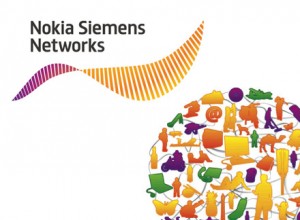 Nokia Siemens Networks, which began as a joint venture between the two erstwhile telecom giants to build network equipment is supposedly looking for potential buyers to take over the non-core units of the joint venture. The company is looking to focus primarily on its mobile network equipment units and is looking to off load even its applications business. Six divestments have already been made according to the company’s CEO because these units were not core to the mobile broadband and the company doesn’t see potential profits from them. As of now it is unclear which companies Nokia Siemens is negotiating with.
Nokia Siemens Networks, which began as a joint venture between the two erstwhile telecom giants to build network equipment is supposedly looking for potential buyers to take over the non-core units of the joint venture. The company is looking to focus primarily on its mobile network equipment units and is looking to off load even its applications business. Six divestments have already been made according to the company’s CEO because these units were not core to the mobile broadband and the company doesn’t see potential profits from them. As of now it is unclear which companies Nokia Siemens is negotiating with.
Among the units that was divested was the business unit which helps telecom companies handle their billing and charging systems and the company as a whole has had a tough time making profits given the economic downturn and skyrocketing competition. In addition to selling noncore units, it appears that the company is also laying off employees to regain profitability. So far, around a quarter of the employee force has been laid off. Among the units that have been sold away are the ones that manufacture equipment for wired networks and has withdrawn from the market for WiMax, a wireless technology that has lost out to 4G LTE among mobile carriers for fast dissemination of data.
According to the company’s CEO, the entire revamping and restructuring of the organization is well ahead of schedule and is going according to plan. Mr. Rajeev Suri, the CEO said that he is confident of the company’s ability to regain profitability and that it will be sustainable in the future. The joint venture was first created in 2007 to capitalize on the increasing demand for network technology but has lost out because of advent of various other models. Right now, the company has been generating cash revenues for the past three quarters and while Mr. Suri is confident of that being sustained, analysts believe it will flatten out over the next year.
The company still has a few divestments to push forward and is currently scouting for buyers and while it might not look like there are many potential interested parties, Suri is confident that the company is on track in that respect too. Perhaps it will be a considerable while before the entire noncore units can be offloaded but the company will get there.